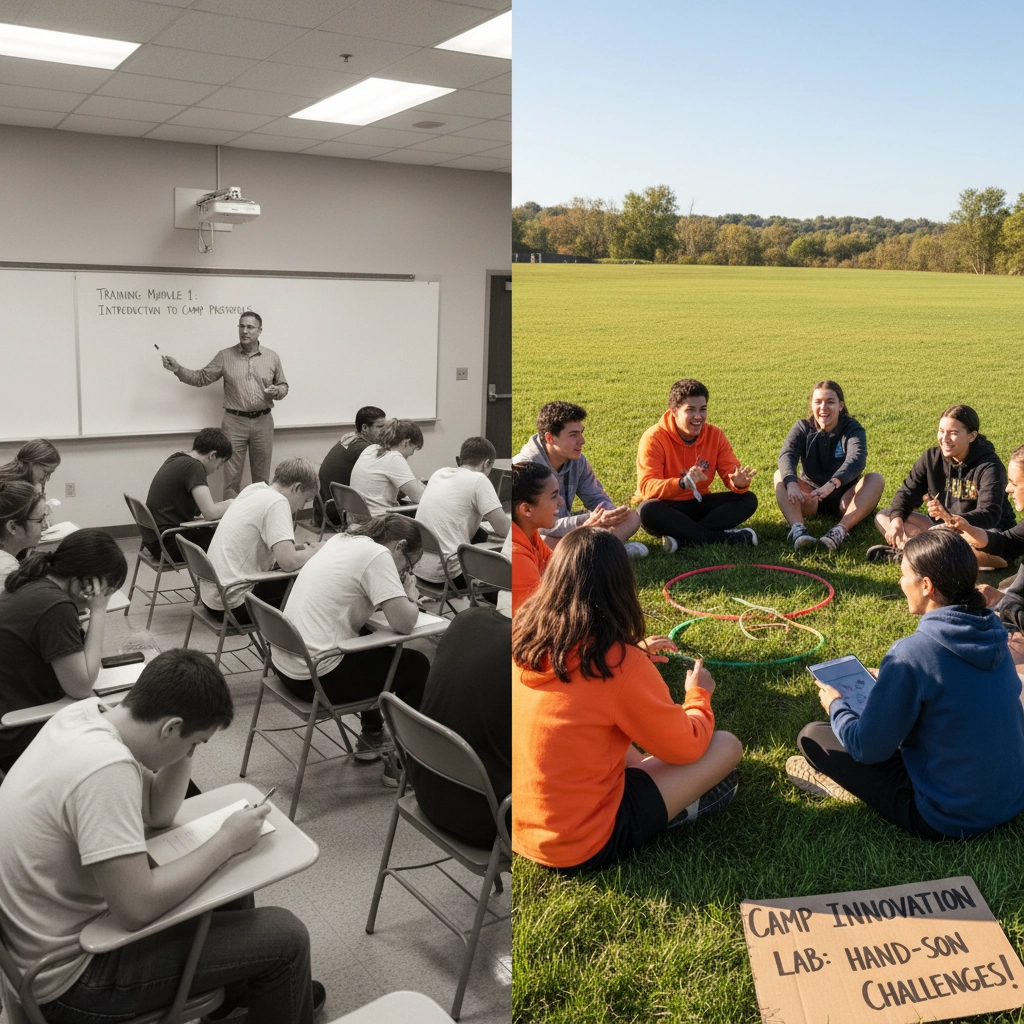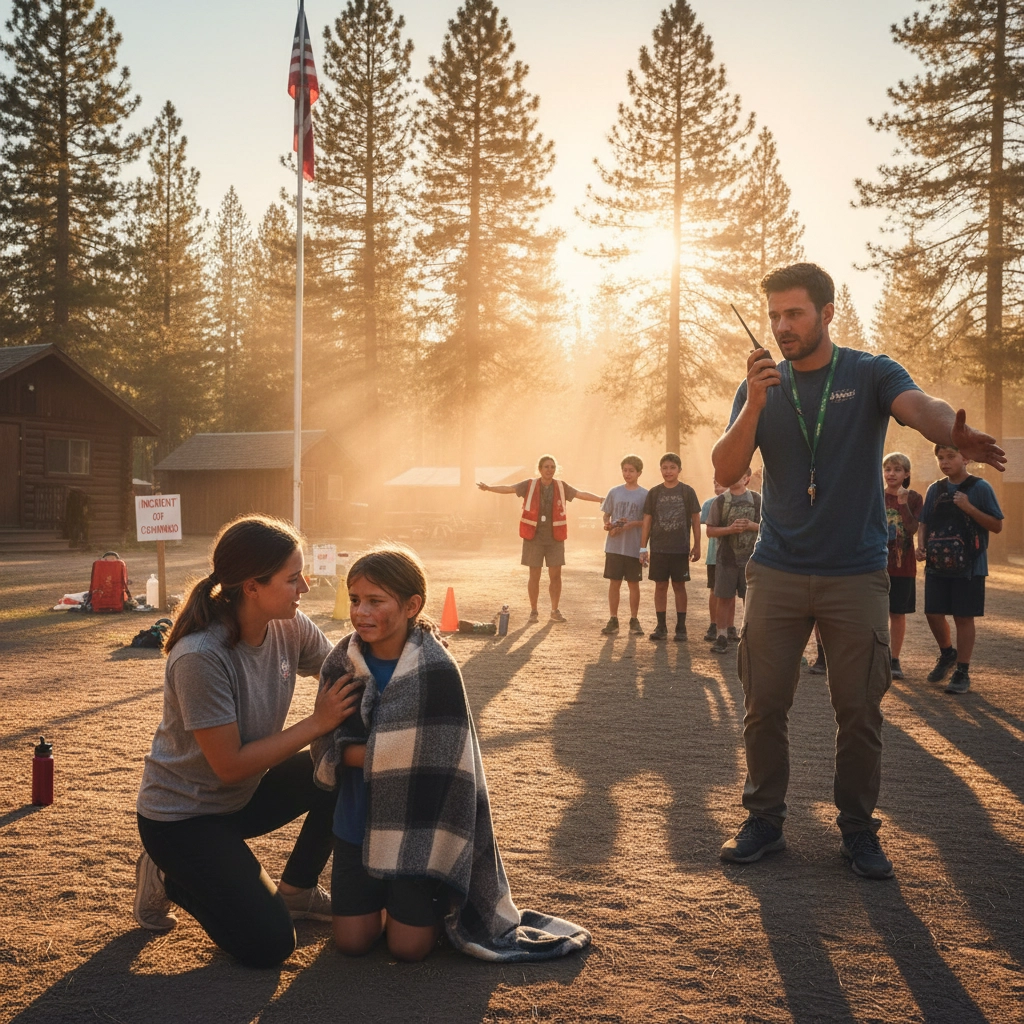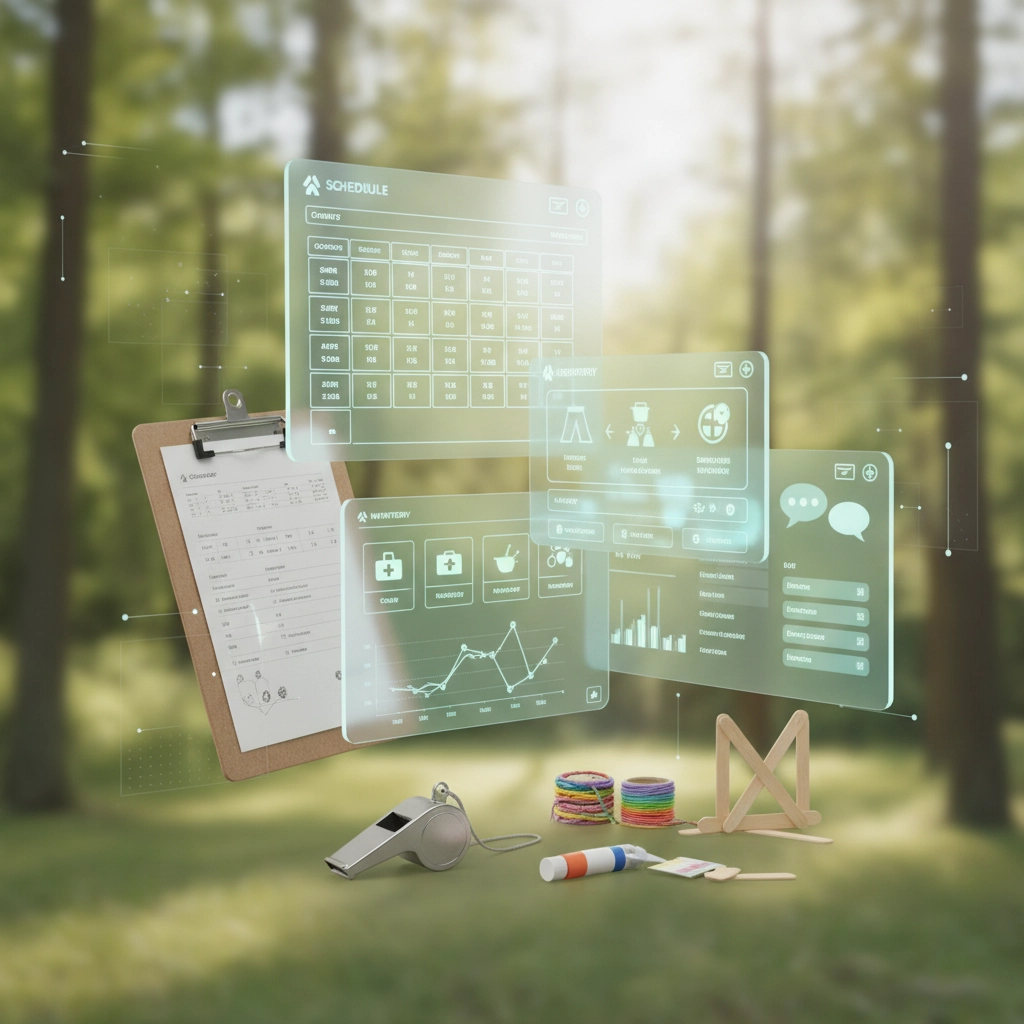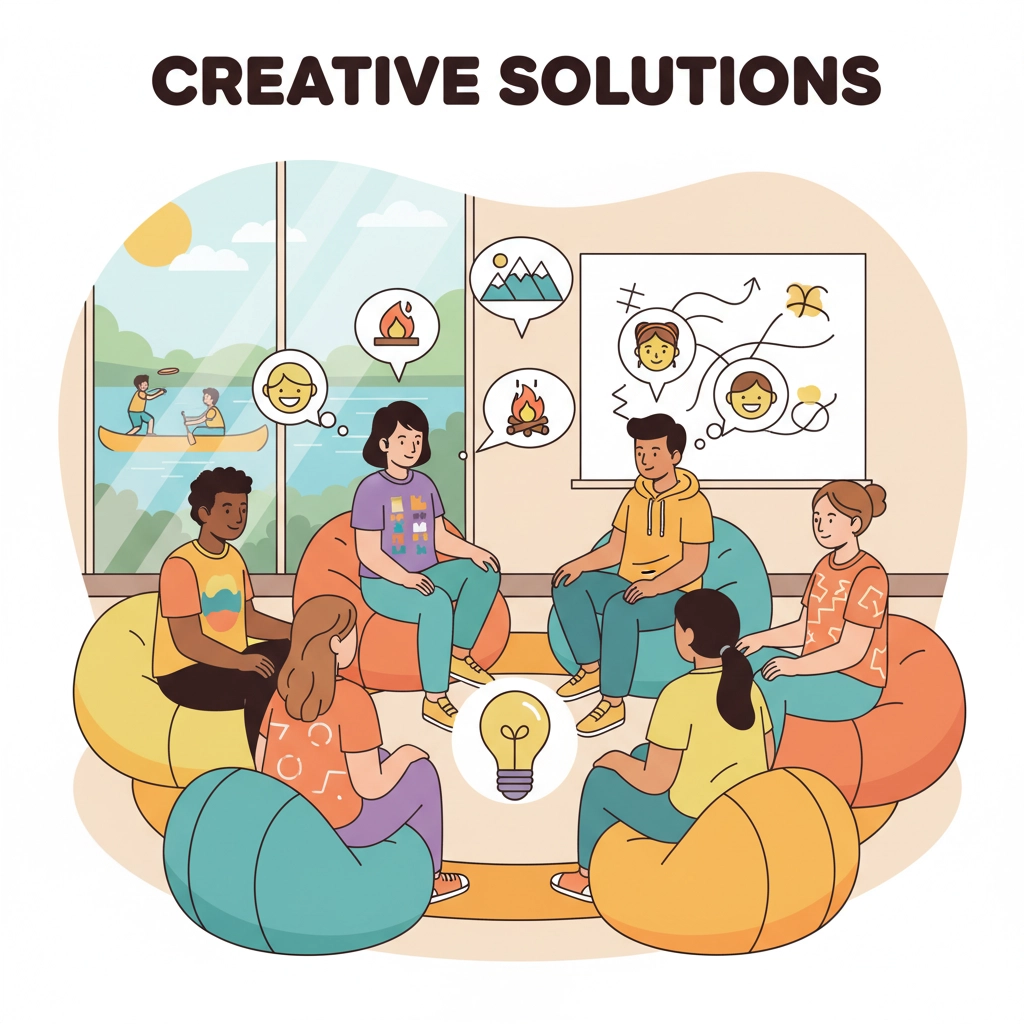The Summer Camp Daily Brief – October 7, 2025
- Matthew Kaufman

- Oct 10
- 5 min read
Today's Headlines Are Speaking Directly to Your Staff Room
Three major stories dropped today that should have every camp director paying attention. LinkedIn's CEO just doubled down on what we've been seeing all summer: skills matter more than degrees, especially for Gen Z workers. IBM unveiled AI tools designed to streamline workplace operations. And schools everywhere are wrestling with how to balance AI integration with teaching real-world skills that can't be automated.
Sound familiar? These aren't just tech industry trends: they're preview clips of what your 2026 staff training should look like.
The Great Skills Shuffle is Already at Your Camp
Here's what LinkedIn's CEO got right: your best counselors probably aren't the ones with the fanciest degrees. They're the ones who can think on their feet when a camper has a meltdown during capture the flag, pivot when the weather destroys your outdoor plans, and genuinely connect with kids who've never been away from home.

The Gen Z and Gen Alpha staff walking into your orientation meetings next year grew up with technology as their first language. They expect workplaces to be flexible, learning to be continuous, and feedback to be immediate. Traditional camp training: the kind where you lecture about policies for three days straight: isn't going to cut it anymore.
Think about your last staff training. How much time did you spend on "how we've always done things" versus "here's how to handle situations you've never encountered before"? If you're like most camps, probably too much of the former.
What This Means for Your Hiring Game
When IBM talks about streamlining operations with AI, they're really talking about freeing up human workers to do what humans do best: connect, create, and solve complex problems. Your camp version? Stop hiring for credentials and start hiring for adaptability.
Here's a practical shift you can make today: instead of asking "Where did you work last summer?" try "Tell me about a time you had to completely change your approach to something." Instead of "What's your GPA?" ask "How do you learn new things when you're under pressure?"
The counselor who can admit they don't know something but knows how to figure it out quickly? That's your future superstar. The one who can teach themselves a new camp song from a YouTube video, troubleshoot a projector, and then use both skills to save a rainy day program? Gold.
Your interview process should feel more like problem-solving sessions than interrogations. Give candidates real scenarios: "It's Wednesday afternoon, your co-counselor called in sick, you have 12 eight-year-olds, and it's been raining for two hours. Walk me through your thinking."
Training That Actually Prepares People for Real Life
Schools are figuring out how to teach skills that AI can't replace. You should be doing the same thing with your staff development. That means less time memorizing camp policies and more time practicing judgment calls.

Instead of reading through your emergency procedures manual, run mock situations. Have someone play the parent who shows up unannounced demanding to speak with their child. Practice the conversation with a homesick camper at 2 AM. Work through what happens when two counselors disagree about how to handle a behavioral issue.
This kind of training feels messy and uncomfortable at first. Good. Real camp life is messy and uncomfortable sometimes. Your staff should practice dealing with ambiguity in a safe environment before they're doing it with actual children depending on them.
One camp director I know started doing "scenario Fridays" during pre-camp training. Every Friday afternoon, staff got thrown curveball situations and had to work through solutions as a team. By the time campers arrived, her counselors weren't just following protocols: they were thinking critically and supporting each other through challenges.
The AI Tools That Actually Make Sense for Camps
IBM's new productivity tools aren't just corporate buzzwords: they're previewing what operational efficiency could look like at your camp. But here's the key: use technology to eliminate administrative headaches, not human connection.
Automated scheduling systems that can handle shift swaps and time-off requests? Yes. AI chatbots answering parents' basic questions about what to pack? Absolutely. Smart inventory management that tracks your arts and crafts supplies and orders more when you're running low? Sign me up.
But automated parent communication about their child's day? Hard pass. AI-generated activity ideas? No thanks. Use technology where it makes your human staff more available for the work that actually matters.

The sweet spot is using AI and automation to handle the mundane tasks that eat up your staff's mental energy. When your counselors aren't stressed about paperwork, scheduling conflicts, or hunting down missing supplies, they can focus on building relationships with campers and creating memorable experiences.
Building Anti-Fragile Staff Culture
The headlines today all point to the same reality: change is the only constant, and the people who thrive are the ones who get comfortable with discomfort. Your camp culture should reflect this.
Stop trying to control every variable and start building staff resilience. That means creating an environment where it's safe to experiment, fail, learn, and try again. When a new activity bombs, the response shouldn't be "never try that again." It should be "what did we learn and how can we adapt?"
Your returning staff members should be your change agents, not your tradition keepers. Give them permission to question how you've always done things. Ask them what they learned from TikTok or Instagram that could improve your programming. Listen when they suggest new approaches to old problems.
The Training Your Staff Actually Needs
Based on today's trends, here's what your 2026 staff training should emphasize:
Adaptability exercises: Regular practice with changing plans, handling unexpected situations, and working with limited resources.
Technology comfort without technology dependence: Teach your staff to use helpful tools while maintaining human-centered approaches to childcare.
Communication across generations: Your staff needs to connect with Gen Alpha campers, millennial parents, and potentially Gen X directors. Practice code-switching between these different communication styles.
Creative problem-solving: Less "here's the rule" and more "here's how to think through complex situations with multiple stakeholders."

Emotional regulation under pressure: Because the best summer camp counselor in the world isn't much help if they fall apart the first time something goes wrong.
Making This Real at Your Camp
Start small. Pick one area where you can immediately start emphasizing skills over credentials. Maybe it's how you assign leadership roles during staff training, or how you handle scheduling conflicts, or how you approach rainy day programming.
Pay attention to which staff members naturally adapt when plans change. These are your informal leaders, regardless of their official titles or previous experience. Give them opportunities to mentor others and share their approaches.
Create regular opportunities for your staff to solve problems together. This could be as simple as weekly check-ins where counselors share challenges and brainstorm solutions, or as formal as dedicated training sessions focused on scenario planning.
Most importantly, model the behavior you want to see. When something unexpected happens: and it will: let your staff see you adapt calmly, think creatively, and ask for help when you need it.
The Bottom Line
Today's headlines aren't just about corporate America or public schools. They're about a fundamental shift in what skills matter most in an unpredictable world. Summer camps are uniquely positioned to develop these skills in both staff and campers, but only if we're willing to evolve our approaches.
The camps that thrive in the coming years won't be the ones with the fanciest facilities or the longest traditions. They'll be the ones with staff who can think critically, adapt quickly, and maintain genuine human connections even when everything else is changing.
Your 2026 staff training starts with the decisions you make today about what really matters.
Ready to dive deeper into building adaptive camp cultures? Follow me on Instagram @mattlovescamp for daily insights and practical tips. And if you're looking for a community of camp professionals navigating these changes together, join us at www.ilove.camp: because the best ideas come from sharing challenges and solutions with people who get it.



Comments